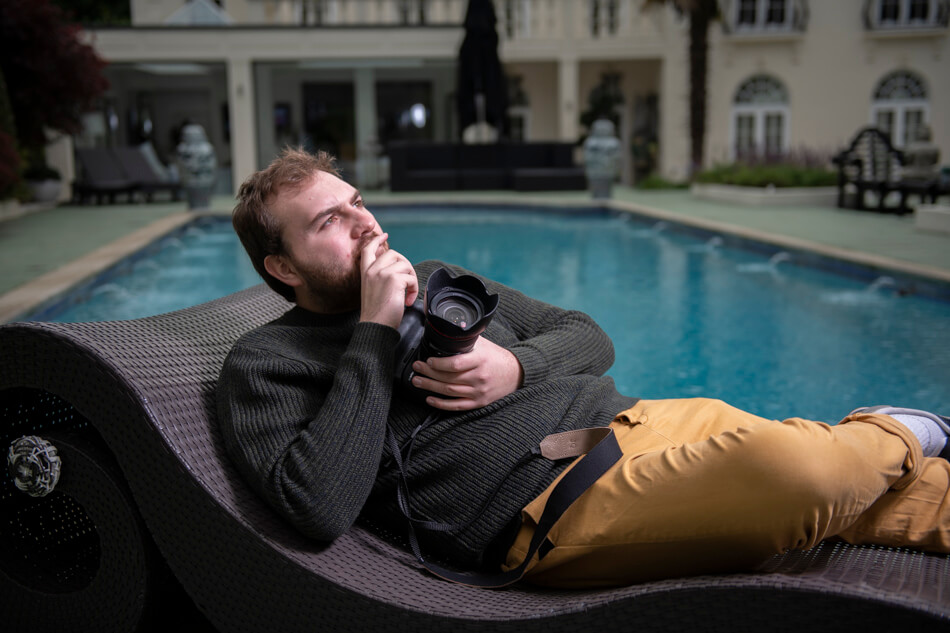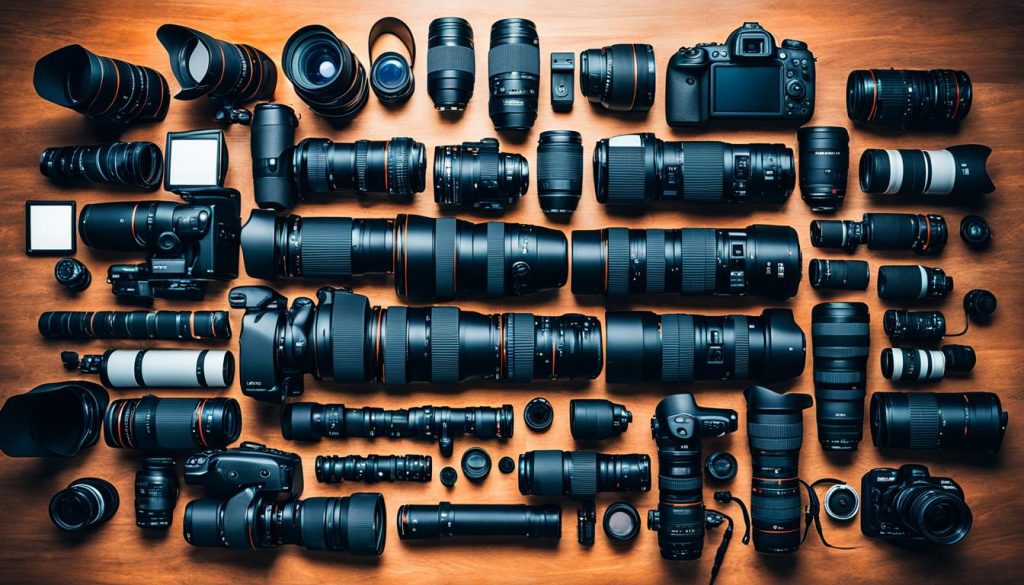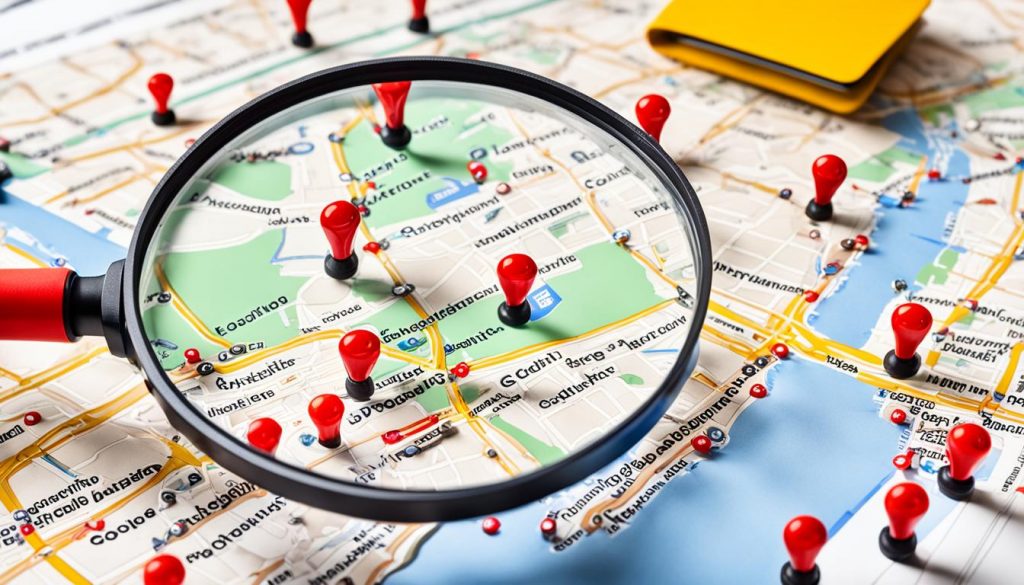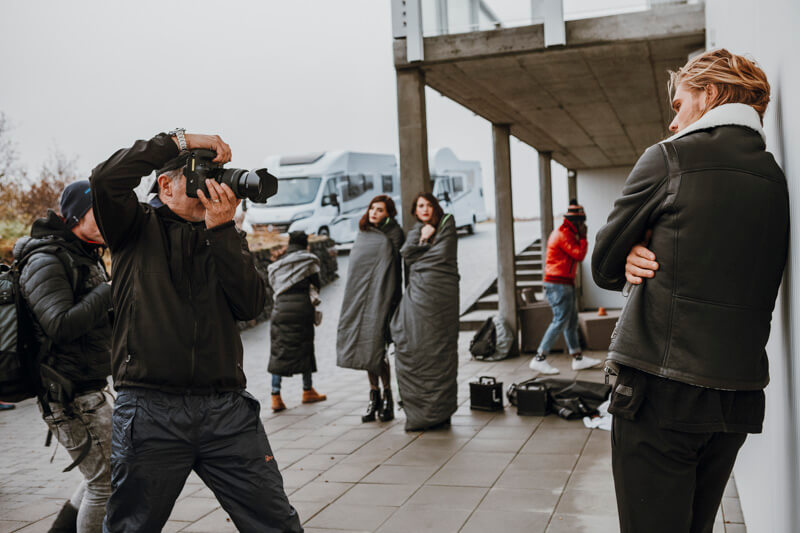Have you ever considered becoming an assistant in photography? For many new photographers, becoming an assistant is a key step. It offers a chance for hands-on learning and to meet pros.
How to Get a Photography Assistant Job – by James Nader
To land a job, try reaching out to known photographers through social media or email. It is important to show your unique skills and enthusiasm for photography. This could be through personal projects or past work, like wedding photos. It helps you shine in a crowded field.
Key Takeaways
- Photographer’s assistant jobs are stepping stones into the professional photography industry.
- Proactive social media and email engagement can set you apart in the job market.
- Showcase your passion and technical skills through self-driven projects and past experiences.
- Networking with established photographers can open doors to employment opportunities.
- Diverse assignments and a robust portfolio can enhance your credibility and marketability.
Understanding the Role of a Photography Assistant
Are you thinking of starting a photography career? It would be best if you considered becoming a photography assistant. This job is key for those starting. You’ll help make sure photoshoots go smoothly. This is a great way to learn and build your skills.
 Key Responsibilities
Key Responsibilities
You’ll do many tasks as an entry-level assistant to help the photographers. These can include:
- Setting up and adjusting lighting equipment.
- Measuring light exposure with light meters.
- Changing camera lenses and ensuring they are clean and functional.
Doing these tasks helps you become skilled at handling the technical side of photoshoots. It prepares you for more assistant jobs in the future.
Required Skills
You need the right skills to get a job as an assistant photographer. You should be good with photography gear and know about lighting. Teamwork is also key.
- Technical proficiency in photography equipment.
- Strong understanding of lighting techniques.
- The ability to collaborate effectively within a team.
Practice is important, too. You can do personal projects to improve. For instance, doing self-photography sessions every week for about a year can improve your skills in handling light.
Typical Work Environment
If you work as an assistant, your workplace can change a lot. It might be outdoors or inside a studio. You might help with weddings or studio work. This varied experience is great for learning and finding more assistant jobs.
Developing Essential Photography Skills
Excelling in professional photographer assistant jobs requires strong skills. Becoming an expert in key photography skills can help you advance in your career. Let’s explore the main things that can propel you forward in this dynamic field.
Really true comments and reflect my own thoughts – James Nader
Lighting Techniques
Learning how to use and adjust light is key for photographers. You can start by learning lighting by taking photos of yourself. There’s a lot you can learn from reading books or watching videos. By practicing self-portraits three times a week for almost a year, you’ll be handling light like a pro. Experimenting with various lights and tools to create different feelings and looks would be best.
Camera Handling
Being good with a camera is essential. This includes knowing how different lenses and settings work. Begin by using your own camera — even simple cameras can be great for learning. Whether it’s a Nikon D700 or something else, keep practicing. Do all kinds of photography, like quick snaps at parties or more formal photos, to get the hang of using a camera well.
Post-Processing Basics
Knowing how to edit photos well is also crucial. Programs like Adobe Photoshop or Lightroom can make your photos look amazing. Start by learning the basics of these programs through online guides. Then, try editing your photos to see how tweaks change the final look. Being good at editing is key for professional photographer assistant jobs, as it makes sure your work looks top-notch.
How to Get a Photography Assistant Job?
Landing a photography assistant role is all about who you know and how good you are. Make sure to connect with people in the field. You can do this at events, on the web, or via social media. A robust set of contacts might recommend you for a job.

Jack – My Assistant before lockdown
Networking Strategies
Start by meeting pros at things like shows or workshops. Online forums and communities help, too. They let you show your work and learn from the best. Making friends with experienced assistants can also help you find work.
Getting Noticed by Photographers
To stand out, go to meet-ups and chat with photographers. Both online and in person. Show your skills with personal projects. For example, I practiced lighting by taking my photos three times a week for nearly a year. These projects can impress future bosses.
Using Social Media Effectively
Remember Instagram and LinkedIn. They’re great for sharing your work. Also, take part in online challenges and use good hashtags, like #PhotographyAssistant.
Becoming active online can lead you to a part-time assistant job. It’s all about using these platforms to show what you can do.
Creating an Impressive Portfolio
Building a great portfolio is key to making your mark in photography assistant jobs. Your portfolio showcases your skills and experiences. It also plays a big part in landing jobs as a photographer’s assistant.
Showcasing Relevant Skills
Your portfolio should highlight the technical skills you’ve picked up. For example, you might have gained much by doing self-portraits to learn lighting. Doing three self-photoshoots every week for a year sharpens your light-handling skills. This kind of hard work shows your commitment and makes you stand out for photography assistant roles.

Highlighting Diverse Projects
It’s crucial to have a variety of projects in your portfolio. This might include photographing friends’ kids or capturing special moments at family events. A great tip is to include photos from a family wedding that got praised. It shows your flexibility and skill.
How to Use Testimonials
Adding testimonials from former clients or employers can boost your portfolio. Great feedback, especially from photography professionals, gives you credibility. It shows you’re professional and trustworthy. Positive reviews can bring more photography assistant jobs, helping you secure your desired roles.
Crafting a Compelling Resume and Cover Letter
A standout resume and cover letter are key to aiming for photographer’s assistant roles. They should highlight your experience and skills and show that you understand what a photographer needs.
Your resume should be well-structured and cover key areas like your education and work history. To better understand the role, dive into photography. Take photos and learn things like lighting. This will improve your skills.
Your cover letter is just as important. Make it specific to the job. Show your excitement about working on their photography projects. Mention times when your skills shone. For example, talk about how you were asked to shoot at professional events after a successful family wedding shoot.
| Essential Components | Details |
|---|---|
| Resume | Structured layout, detailed experience, technical skills, relevant projects |
| Cover Letter | Personalised for each application, specific achievements, professional tone |
| Technical Skills | Lighting, camera operation, post-processing |
| Real-world Examples | Candid wedding photos, self-portrait lighting experiments, project collaborations |
In summary, get your resume and cover letter for these roles. Keep everything concise and tailored. This shows you’re serious and ready to make a meaningful contribution to their team.
Where to Find Photography Assistant Job Listings
Looking for a photography assistant job might seem challenging at first. However, once you know where to search, it gets much easier. Several places offer job listings for photography assistants, helping you start a fulfilling career.

Online Job Boards
Online job boards are a great place to start. Sites like Indeed, Glassdoor, and Linkedin often have roles for photography assistants. By checking these boards often, you can find and apply for new jobs quickly.
Photography Forums and Communities
Joining photography forums and online groups is very helpful. Platforms like Reddit’s photography subreddit and Facebook have job postings and freelance gigs. Being active in these places helps you know about opportunities and connect with employers.
Industry Events and Workshops
Don’t miss out on workshops, events, and conferences. These places let you meet photographers and professionals face-to-face. You can learn about job openings directly and make contacts that could lead to new photography assistant roles.
When searching for photography assistant jobs, consider both online and offline options. With the right approach, you can improve your chances of finding a job that matches your skills and interests.
Nailing the Interview Process
Doing well in interviews is key to getting a job as a photography assistant. Talk about your background, skills, and love for photography. This will make you stand out. Follow these tips to shine in your interviews.
Common Interview Questions
In interviews, they’ll ask about your photo skills, the types of shoots you’ve done, and teamwork. For example, you might be asked:
- Can you describe a challenging shoot you helped with and how you managed it?
- What’s your experience with different lighting setups?
- How do you decide what to do first when you’re in a rush?
When you answer, focus on your experience and problem-solving. Talk about learning lighting by taking self-portraits. Doing a self-shoot weekly shows how dedicated and skilled you are.
 How to Present Yourself
How to Present Yourself
Looking right for the interview, being on time, and bringing your portfolio are all important. Show passion for photography and that you can adapt. Talk about experiences like taking great shots at events or using various equipment. For example, you could discuss capturing moments at a wedding or handling shoots with your Nikon D700.
Following Up After the Interview
After the interview, follow up. It shows you’re professional and still very interested. Send a thank you email that talks about your excitement and skills. This can impress the interviewers and help you get the job.
Gaining Experience Through Internships
Internships are essential for those interested in photography. They allow for real-world learning and increase the chance of getting a job as a full-time photo assistant. This is true whether you receive pay or not.
Internships give you a peek into the inner workings of the photography world. They also let you meet people in the industry and show how much you care about your craft.
Paid Internships
Getting paid for your internship is a big plus. It means you’re learning and earning at the same time. Jobs like these are not easy, with many hopefuls competing for them.
In these roles, you get to help on actual photo shoots. You also learn how to use top-of-the-line gear. Earning money during this time helps you slowly shift into a full-time role. This is why paid internships are well-regarded by those in the know.
Unpaid Internships
Working without pay has its own set of advantages. Even though you’re not earning, you’re gaining priceless experience. These changes often come by reaching out to photographers you look up to.
By spending time with them, you pick up skills that will be key in your future career. This kind of effort can stand out when you’re trying to land a more secure job.
Transitioning from Intern to Assistant
Moving from intern to assistant is the dream. You will be noticed if you consistently show off what you’ve learned and prove you’re hardworking. This includes doing your photo shoots.
By learning light techniques through practice, you make yourself a stronger candidate. This kind of dedication is what often brings new job offers your way. It’s all about growth and showing what you’re capable of.
The Importance of Networking in the Photography Industry
Networking is key to becoming a successful photographer’s assistant. It lets you build relationships with professionals, which can lead to jobs and mentorship. Make sure to connect with others in the field through events, social media, and meeting seasoned photographers.
Building Relationships with Photographers
It’s essential to know and connect with experienced photographers. They can show you the ropes and maybe offer you a job. Joining events and online communities is a great start. Show that you’re passionate about photography. Be eager to learn from them.
 Leveraging Social Media
Leveraging Social Media
Social media, like Instagram and LinkedIn, can boost your career. Post your work online. Talk to other photographers. Also, be part of groups that share photography tips. By being active online, you can make yourself known in the industry. This could lead to finding part-time gigs or even a full-time job.
When I began my photography career, I practiced lighting using self-portraits. I also learned a lot from online resources. I took candid photos at a wedding, which impressed someone enough to ask me to shoot more weddings. Doing such things made my interest a professional opportunity.
Making a Great Impression on Set
Getting into assistant photographer job openings and boosting your chances is all about impressing on set.
Being Punctual
Being on time is vital in photography. It shows you’re trustworthy and value everyone’s time. Arriving early helps you get ready and smoothly start any necessary work.
Showing Initiative
Demonstrating initiative can make you stand out. Getting gear ready early and learning on your own, like trying out lighting, makes a big difference. As an example, I did three self-photo sessions every week for nearly a year to improve. This made me essential to professional photographers.
Maintaining Professionalism
Being professional the whole time you’re on set keeps you and the photographer looking good. This means talking well with clients and doing your tasks without issues. Acting professionally helps build your trust as a reliable team player, which can help your photography assistant career opportunities.
Take Away
Starting as a photography assistant involves focusing on tech skills and personal development. Learning camera use, lights, and editing is key. Practicing self-portraits helps you learn about lights, which will improve your control of light in your photos. You can also learn from books, videos, and online tutorials.
Creating a good portfolio is vital for getting hired as a photographer’s assistant. Make your portfolio diverse. It should show the different types of work you’ve done. Start by taking photos at family events or for friends. This strengthens your portfolio and boosts your confidence. For example, taking pictures at family weddings might lead to professional wedding photography offers.
Networking is crucial in finding job opportunities. Use social media like Instagram and LinkedIn to connect with people in the industry. Attend workshops and industry events. It opens the door for job recommendations. Being reliable and professional further builds your name in the industry.
Knowing what is expected and looking for ways to improve are critical in this role. This guide is here to help those interested in a career as a photography assistant. By working hard, connecting with others, and improving your portfolio, you set the stage for a fulfilling career in photography.


 Key Responsibilities
Key Responsibilities How to Present Yourself
How to Present Yourself Leveraging Social Media
Leveraging Social Media